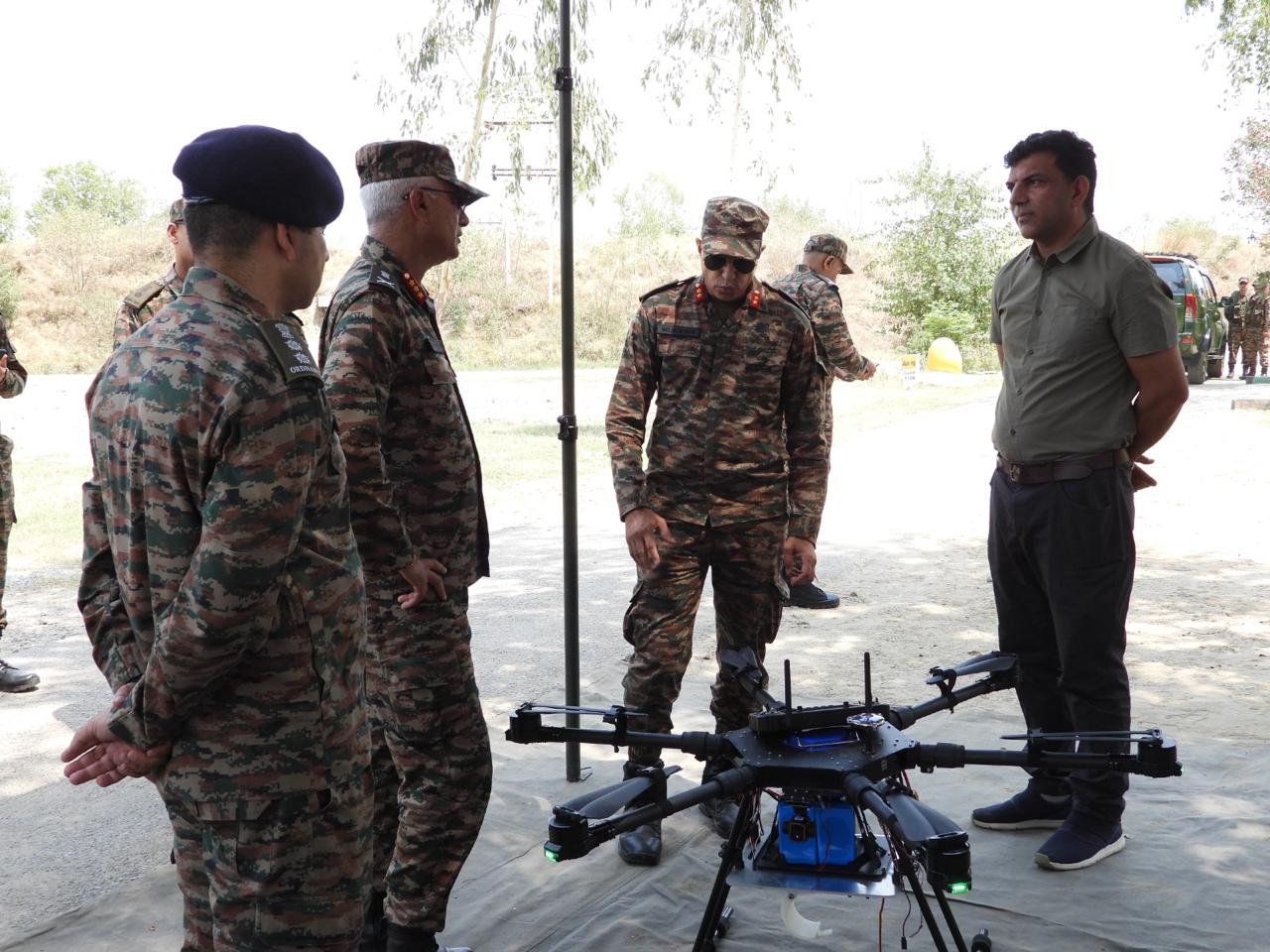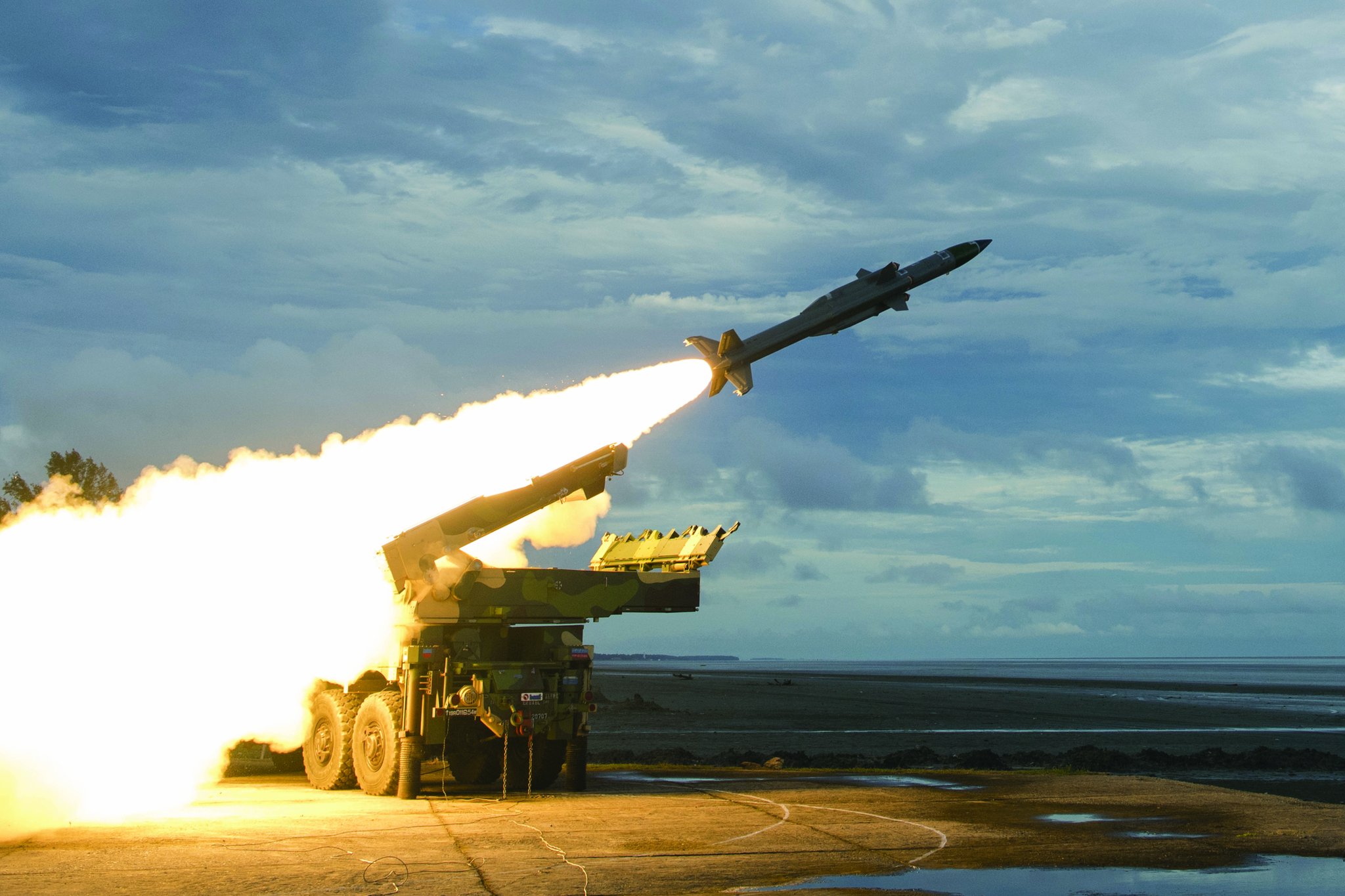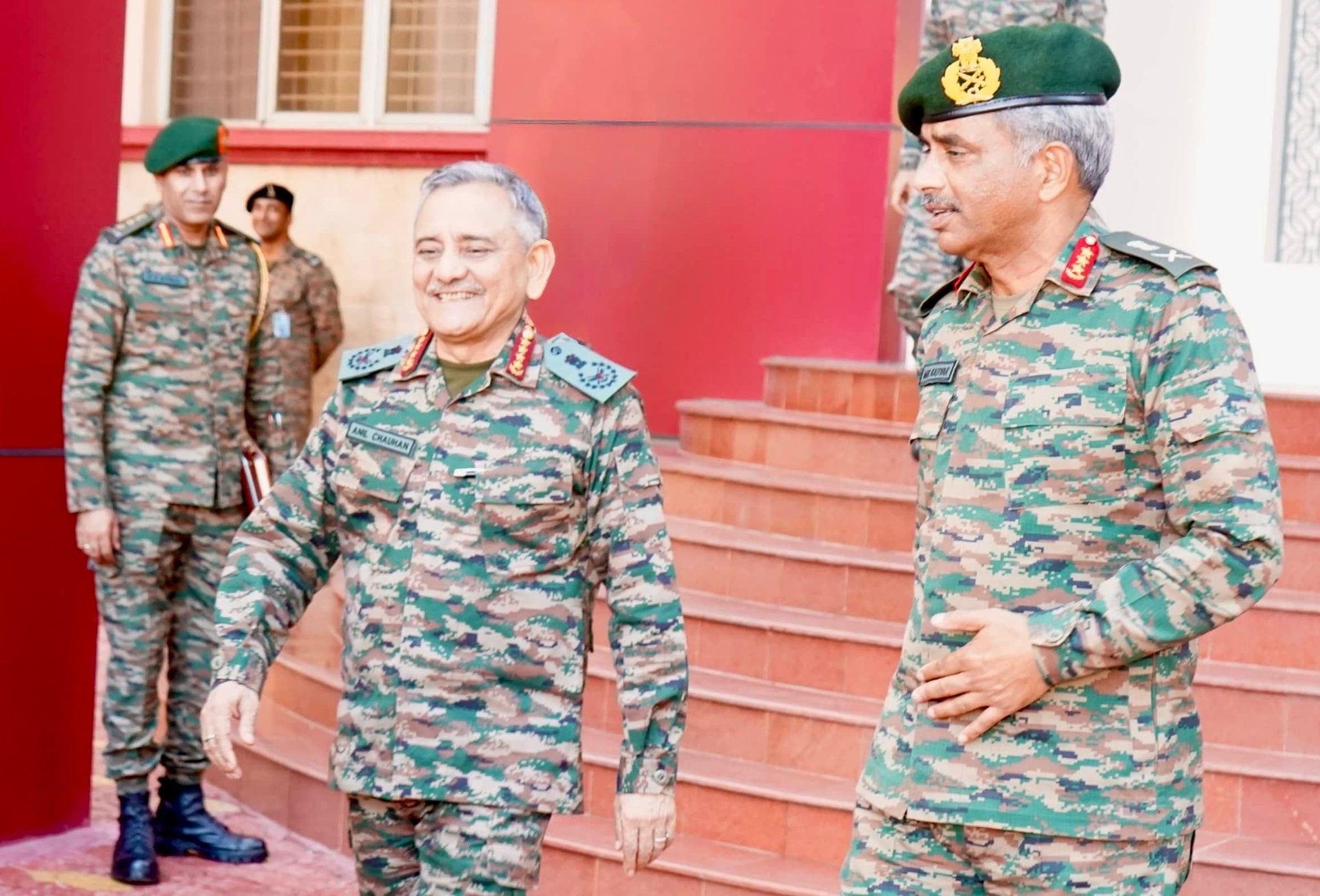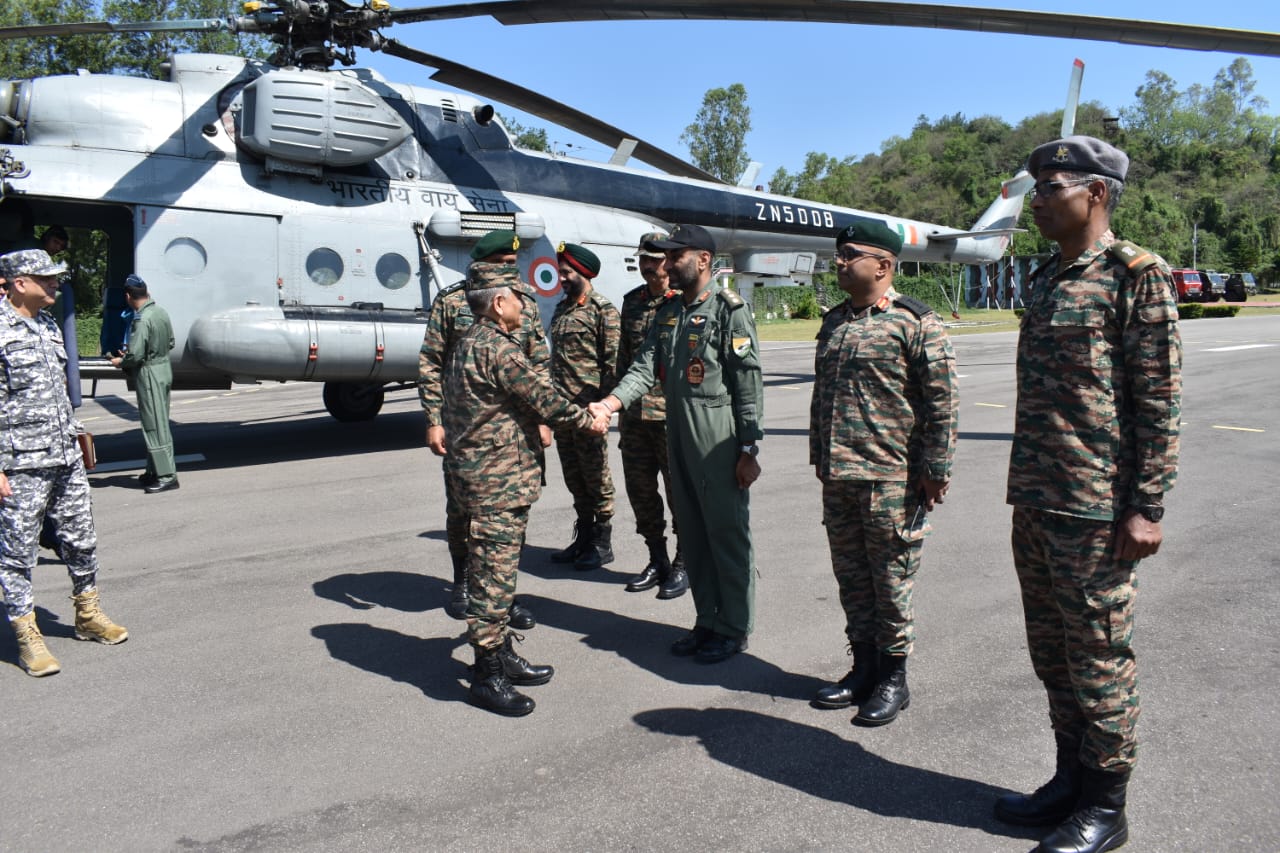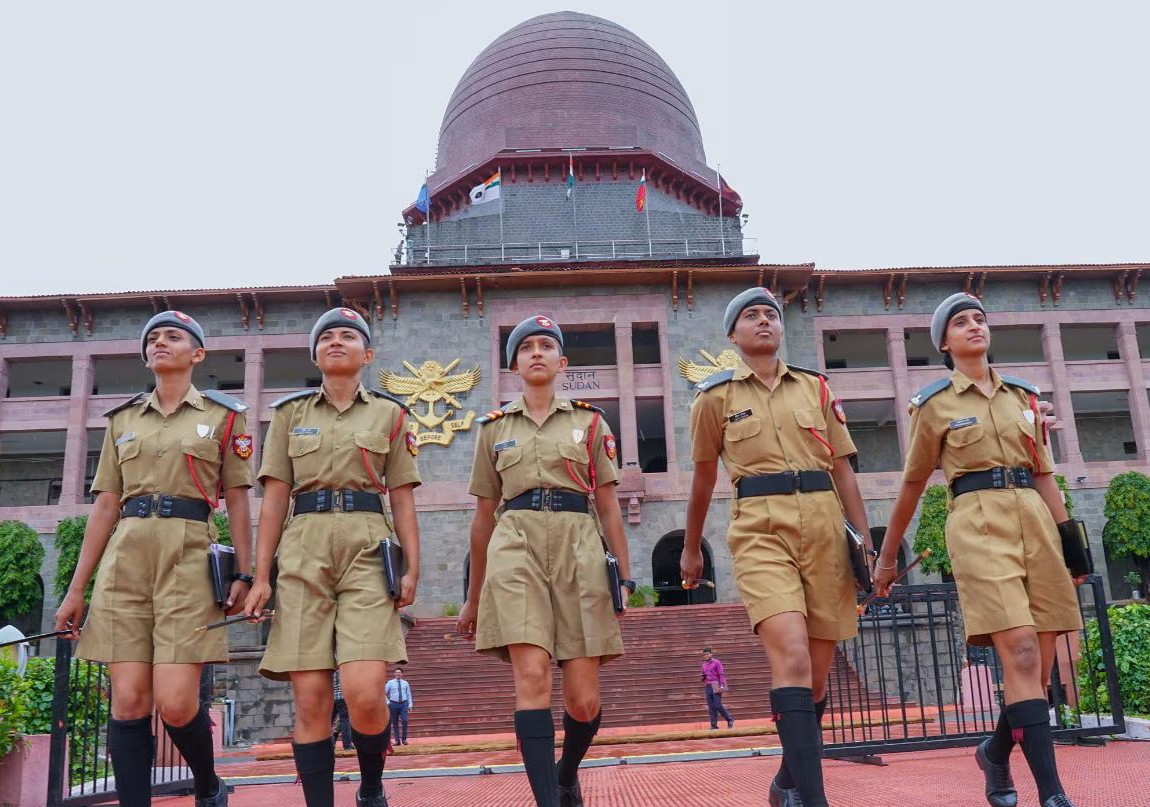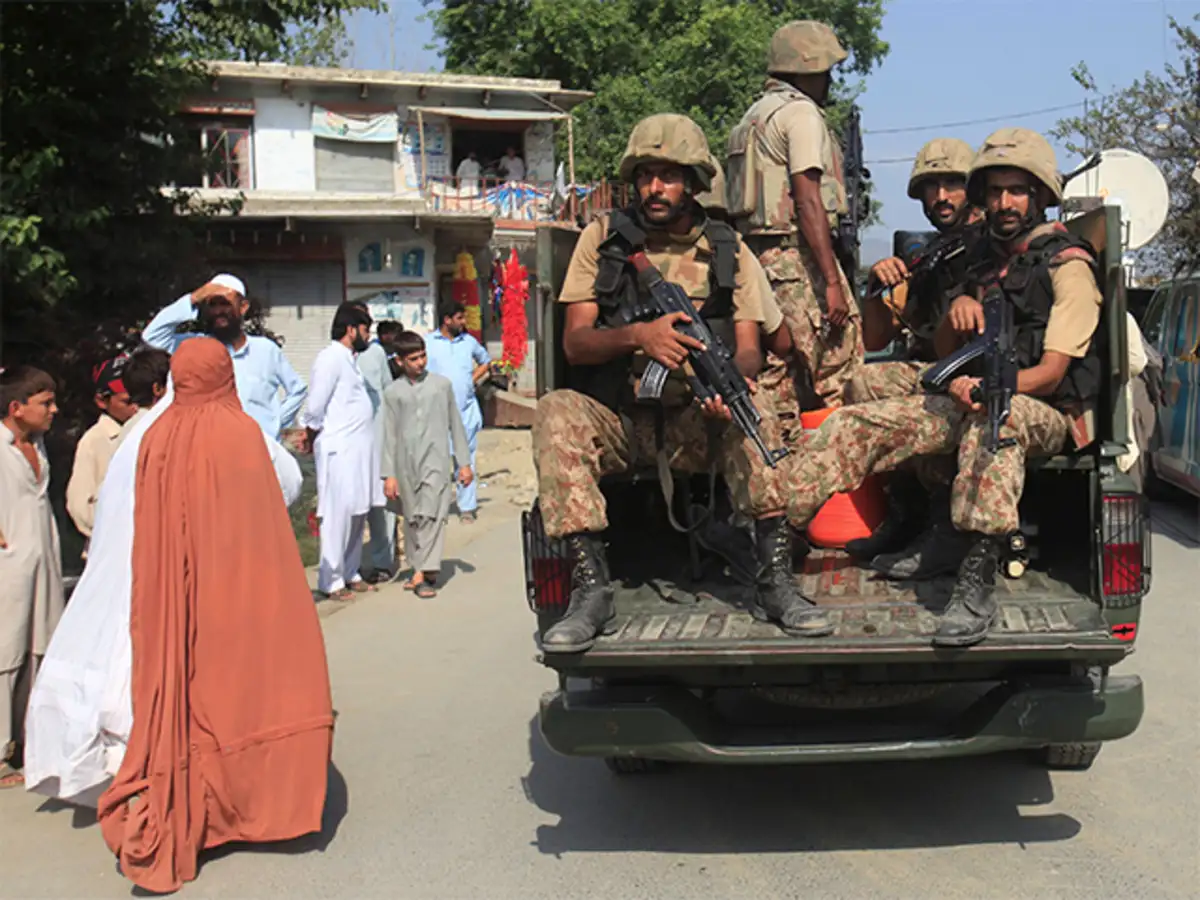Rising Star Corps Commander Reviews Readiness in Jammu Amid Tensions with Pakistan
The General Officer Commanding (GOC) of the Indian Army’s Rising Star Corps conducted a high-level review of operational preparedness in…
Akash SAM Shoots Down Pakistan’s Fatah-1 Missile in Operation Sindoor, Video Goes Viral
A video capturing the Indian Army’s Akash Surface-to-Air Missile (SAM) intercepting and destroying a Pakistani Fatah-1 missile on May 10…
CDS General Anil Chauhan Reviews Western Command’s Role in Operation Sindoor at Chandimandir
Chief of Defence Staff General Anil Chauhan visited Chandimandir Military Station and interacted with Lieutenant General Manoj Kumar Katiyar, General…
CDS General Anil Chauhan Reviews Operational Success of Northern Command in Udhampur
Chief of Defence Staff General Anil Chauhan visited Udhampur to assess the operational readiness and strategic outcomes achieved by the…
NDA’s First Batch of Women Cadets Set to Graduate, Marking Historic Milestone in Armed Forces
In a landmark moment for the Indian Armed Forces, the National Defence Academy (NDA) is set to graduate its first-ever…
Indian Army Plans Troop Rebalancing as Pakistan Prepares to Return to Pre-April Positions
In the aftermath of the temporary pause in Operation Sindoor, the Indian Army is reportedly planning a strategic troop “rebalance”…

